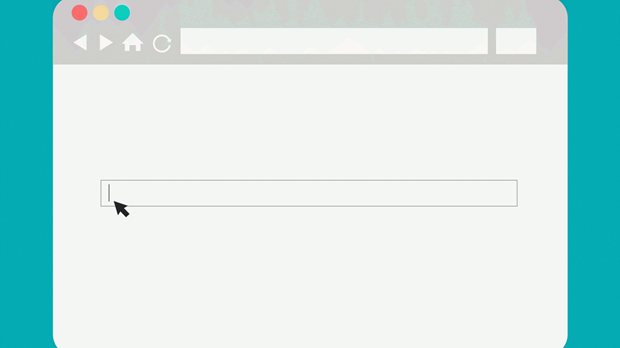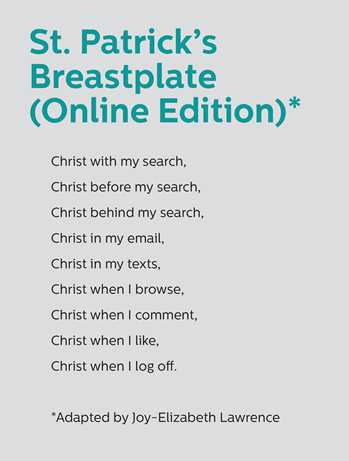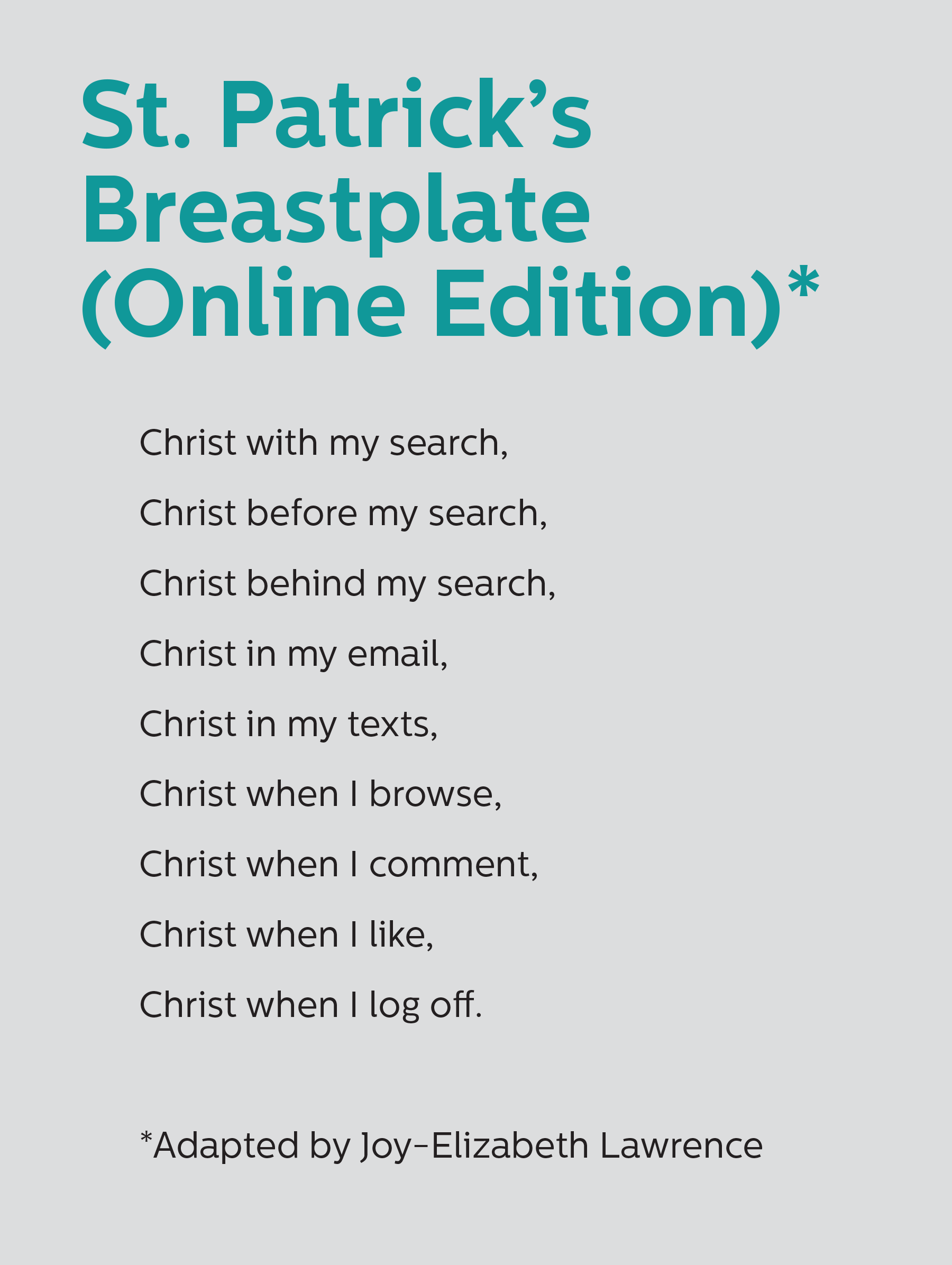The Problem with Google

Several months ago, a friend was telling me about his search for the perfect used car for his family. He was seeking a specific model, in a specific state, within a specific price range, and he was not finding it. Finally, in a moment of desperation, he entered something like, “Please, God, help me find a used minivan that’s less than $10,000!” in the Google search bar and, bingo, the perfect one—first on the list.
When I first heard this story, I was happy for my friend. But as I thought about it, I began to wonder more about the significance of this event. I’m sure he isn’t alone: typing prayers into search engines is not uncommon. (Just see what comes up on autofill when you type “dear God,” “help God,” or “please God” in the Google search bar.) And it isn’t that I don’t believe God can work through Google—I believe he can and is present everywhere. I also believe, though, you can pray to Jesus in a Buddhist temple and Jesus will hear you, but I am not convinced this is wise or, as Paul so deftly wrote, “beneficial” ().
Going to Google or God?
In this age of information (think about the literal meaning of google) I wonder: Are we becoming people who more readily turn to Google instead of to God? Have we deified the search engine so that we believe in its omniscience? Maybe we don’t say or think we believe in its all-knowing attribute, but maybe our practice indicates we do, indeed, believe this giant web of information has the answers to all of life’s persistent problems. I wonder if this practice of immediately turning to Google is teaching us that Google has the answers we need—not God or the Christian community.
I’m certainly not advocating that we must pray instead of searching for a substitute for cream of tartar in a recipe or that we avoid looking up the phone number for our doctor’s office online! Don’t feel guilty for googling, but do consider this: perhaps there is another way to approach the depth of information at our fingertips—a richer and deeper practice we can cultivate that is in tune with God’s kingdom, the reality of Christ’s presence with us, and the fellowship of believers surrounding us.
People Who Search and People Who Love
In the past 20 years, the ways we find and keep information has drastically changed. How many of you have an encyclopedia set in your home now? What about a recipe file? Phone book? Address book? Do you carry a physical Bible to church, or do you use a Bible app on your smartphone? Though the way we procure and manage information may appear like a neutral topic, it is actually quite influential in what kind of character and virtues we cultivate because our habits show what we love.
Christian philosopher James K.A. Smith writes that humanity is best understood as creatures whose identity is centered in what they love rather than what they think or believe. “This love or desire—which is unconscious or noncognitive—is always aimed at some vision of the good life,” he writes in Desiring the Kingdom. “What primes us to be so oriented—and act accordingly—is a set of habits . . . that are formed in us through bodily practices, routines, or rituals that grab hold of our hearts through our imagination, which is closely linked to our bodily senses.”
Do you see what’s going on here? For years, philosophers focused on what we thought—and the church has often followed this by focusing on doctrine or theology. But actually, we are fundamentally creatures who love, and our love is formed through our habits. Take two seconds to think of the strongest Christian you know. (Pause and think.) Did you think of her because of the doctrine she communicated to you so eruditely? Probably not! You probably thought of her by the way she demonstrated Jesus’ love through her actions. We are all storytellers, telling our significant stories with our bodies and through our actions every day. These stories are our practices—and our practices show what we love.
So, let’s consider the practice of the Internet search. What does it indicate about our “vision of the good life” (as Smith phrases it)? What does it reveal when we tend to look for the easiest, quickest answer to our problems? When googling is our first step, what does this demonstrate about our love? In the story of the Google search, who has the answers?
Perhaps you are considering a vocational change or wondering whether or not to continue in a dating relationship. Or maybe you’re afraid you’re going to push your teenager out the window the next time she talks back to you. How do you pursue answers in light of all the information available to us on the Internet? These are significant questions that require much thought and prayer from all of us who use the Internet on a daily basis. Consider these actions as you try to navigate the rapidly changing waters of the information tsunami.
Seek Wisdom in Prayer
First, pray. Pray before you google. Pray as you google. Pray after you google. Even though you may use your smartphone as a flashlight, it is not the lamp for your feet and the light to your path that Psalm 119 is referring to! (Perhaps you may want to put as the wallpaper on your phone.)

Seek Wisdom over Distraction
Second, don’t confuse information and knowledge with wisdom. Yes, we have access to so much information today. You might be able to learn what a high school friend from 20 years ago ate for lunch today. But does this help you grow in wisdom? Wisdom comes from God; we become wise as we meditate on Scripture, as we seek wisdom in prayer (remember ), and as we develop relationships with believers who are more mature than us—doing all of this in a posture of humility and learning.
Though knowing what your friend ate for lunch may be interesting, is it beneficial to your growth in wisdom or is it a distraction? Sometimes I wonder if this plethora of information—even if it is of neutral value—distracts us from pursuing God’s wisdom. Be wise about how you spend time online. Remember what Paul wrote the church in Ephesus: “So be careful how you live. Don’t live like fools, but like those who are wise. Make the most of every opportunity in these evil days” (Ephesians 5:15–16).
Seek Wisdom from Your Faith Community
Third, remember to seek answers from others who love God and seek God’s best for your life. In Bruce Waltke’s little book Finding the Will of God: A Pagan Notion?, he makes a list of what he calls “God’s Program of Guidance” that includes reading your Bible, developing a heart for God, and seeking wise counsel. When I was discerning where to go to seminary, I didn’t do many Internet searches (this was in 2013). Instead, I prayed. I talked to Christians who had been to seminary recently and who knew me well. I visited one school, spent time in chapel, and talked to professors rather than looking them up on RateMyProfessor.com. I listened to them express their vision for the school and the students there. I spoke to people face-to-face and asked people for their own wisdom and counsel. These people were ones who love me and have me and my family’s best interest in mind.
We must remind one another that, although there may be people and posts online that can help us, for the most part the Internet doesn’t have our best interest in mind. It wants us to click advertising links. It wants us to buy stuff. It wants us to become another “user.” And it makes all of this compelling, easy, fun, and addictive.
Instead, when you have a question, include others in your inquiry. This may even be appropriate in small things. I called my grandma to ask her domestic questions until the day she died. Of course, I could have googled how to cook a sweet potato, but my question brought us together. And even though the Internet did have an answer to my question, it didn’t have her answer in her voice. Personal connections—even for small things—may provide opportunities for a richer, deeper life of Christian community.
We are all navigating a new world. The Internet is a new dimension of connection and knowledge. Christ is present with us, but we must remember The Cloud today is not the same cloud that led God’s people through the wilderness. May God’s Spirit guide us all as we discern how to wisely, carefully, and prayerfully use the Google of information at our fingertips.
Joy-Elizabeth Lawrence is a TCW regular contributor. A writer and performer who specializes in biblical storytelling, Joy is the mother of two children and lives with her family in Grand Rapids, Michigan. She can be found at PathlightStories.com.
Read more articles that highlight writing by Christian women at ChristianityToday.com/Women
 Read These Next
Read These Next


 The ABC's of PrayerHelping children talk to God can be as easy as A-B-C. Use this simple guide to add some spark to your family's prayer life.
The ABC's of PrayerHelping children talk to God can be as easy as A-B-C. Use this simple guide to add some spark to your family's prayer life.









 Homepage
Homepage
